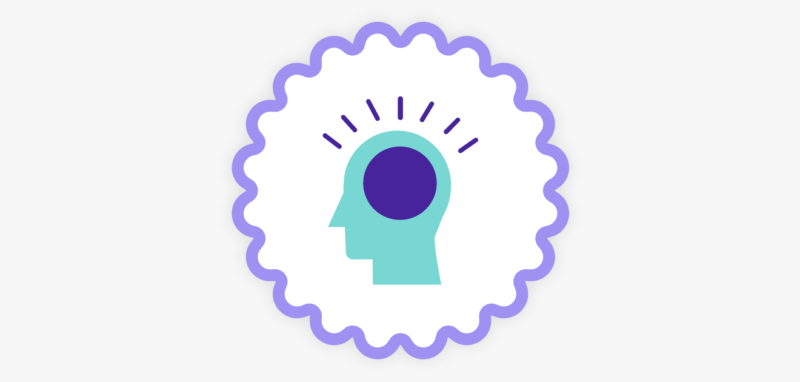Tech Skill
PyTorch Skills
All about PyTorch
PyTorch is a powerful open-source deep learning framework developed by Facebook’s AI Research lab (FAIR). Renowned for its flexibility, dynamic computation graph, and ease of use, PyTorch has become one of the most popular choices among researchers and practitioners in artificial intelligence (AI) and machine learning.
With its intuitive interface and extensive library of tools and utilities, PyTorch skills enable developers to build and deploy state-of-the-art deep learning models for a range of applications, from computer vision and natural language processing to reinforcement learning and beyond.
New data on Software Developer tech skills & more
Hired’s previous State of Software Engineers report has become an article series focused on Software Engineer Trends featuring:
- Trends in Software Engineer Tech Skills: 2024 Report
- Will AI Replace Programmers? New Expert Insights
- Trends in Software Engineer Specializations: 2024 Report
What to use PyTorch skills for
Here are some key applications of PyTorch:
- Deep Learning Research: PyTorch is widely used for conducting research in deep learning and artificial intelligence, thanks to its flexibility, expressiveness, and dynamic computation graph. Researchers use PyTorch to prototype new models, experiment with novel architectures, and explore cutting-edge techniques in areas such as computer vision, natural language processing, generative modeling, and reinforcement learning.
- Model Development: PyTorch is used for developing and training deep learning models for various tasks, including image classification, object detection, speech recognition, text generation, and sequence prediction. Developers leverage PyTorch’s high-level APIs and extensive library of pre-trained models to accelerate the development process and achieve state-of-the-art performance on benchmark datasets.
- Production Deployment: PyTorch is used for deploying deep learning models into production environments, enabling organizations to leverage the power of AI to solve real-world problems at scale. PyTorch provides tools and libraries for optimizing models, deploying them on various hardware platforms (e.g., CPUs, GPUs, TPUs), and integrating them with existing software systems and workflows.
A PyTorch developer is a software developer who specializes in building and deploying deep learning models using the PyTorch framework. PyTorch developers possess the following skills and attributes:
- Proficiency in Python: PyTorch developers are proficient in the Python programming language, including its syntax, data structures, object-oriented programming concepts, and standard libraries. Python is the primary language for working with PyTorch, and developers use it to write code for defining, training, and evaluating deep learning models.
- Understanding of Deep Learning Concepts: PyTorch developers have a solid understanding of deep learning concepts and techniques, including neural networks, convolutional neural networks (CNNs), recurrent neural networks (RNNs), attention mechanisms, and reinforcement learning. They understand how these algorithms work and how to apply them to solve various machine learning tasks.
- Familiarity with PyTorch Framework: PyTorch developers are familiar with the PyTorch framework and its core components, including tensors, autograd, modules, optimizers, and utilities. They understand how to use PyTorch’s APIs and utilities to build, train, and deploy deep learning models efficiently and effectively.
- Experience with Model Development: PyTorch developers have experience with developing and training deep learning models for various tasks, including image classification, object detection, speech recognition, text generation, and sequence prediction. They understand how to preprocess data, define model architectures, select loss functions, and optimize hyperparameters to achieve optimal performance.
- Advanced Model Architectures: PyTorch developers need to have advanced knowledge of deep learning model architectures beyond basic neural network structures. This includes understanding state-of-the-art architectures such as transformer networks, graph neural networks, and self-supervised learning models. They should be able to implement and customize these architectures to solve complex machine learning tasks.
- Efficient Training Techniques: PyTorch developers should be proficient in efficient training techniques for deep learning models, including distributed training, mixed precision training, and model parallelism. They should be able to scale training to large datasets and compute clusters while minimizing training time and resource utilization.
- Model Interpretability and Explainability: With the increasing importance of model interpretability and explainability, PyTorch developers need to have knowledge of techniques for interpreting and explaining deep learning models. This includes methods for feature attribution, model visualization, and uncertainty estimation, as well as tools for debugging and verifying model behavior.
- Deployment and Productionization: PyTorch developers should be skilled in deploying and productionizing deep learning models in real-world environments. They should be familiar with deployment platforms and frameworks such as TorchServe, ONNX, and TensorFlow Serving, and understand how to optimize models for inference speed, memory efficiency, and scalability.
- Domain-Specific Knowledge: PyTorch developers should have domain-specific knowledge in the application areas of deep learning, such as computer vision, natural language processing, healthcare, finance, and autonomous systems. They should understand the unique challenges and requirements of these domains and be able to apply deep learning techniques effectively to address them.
Hiring PyTorch developers can bring numerous benefits to your organization:
Cutting-Edge Expertise
First, PyTorch developers bring cutting-edge expertise in deep learning research and development. This enables organizations to leverage the latest in artificial intelligence and machine learning to solve complex problems and drive innovation.
Flexible and Dynamic
Second, PyTorch developers offer flexibility and dynamism in model development and experimentation. This is thanks to PyTorch’s dynamic computation graph and intuitive interface. They can quickly prototype, iterate, and refine deep learning models to achieve optimal performance and accuracy.
Scalable and Production-Ready
Third, PyTorch developers are skilled in deploying and productionizing deep learning models in real-world environments. These skills enable organizations to leverage the power of AI at scale. They can optimize models for inference speed, memory efficiency, and scalability, and ensure reliable and robust performance in production deployments.
Assess tech candidates for PyTorch skillsLooking for candidates skilled in PyTorch? Technical assessments are a multi-pronged solution. They allow you to streamline the hiring process and reduce bias with tech skill-focused benchmarks.
Hired Assessments offers a library of hundreds of questions and customizable coding challenge campaigns tailored to technical preferences. Centralize and standardize your evaluation process as you surface top talent with specific, hard-to-find skills.
See how Mastercard and Axon used Hired Assessments to vet top candidates. See more Hired customer success stories…
Are you looking for a tech job using PyTorch skills?
PyTorch resources
Check out our resources to continue sharpening your PyTorch skills. We have partnerships with organizations that provide bootcamps and upskilling for tech jobs. Hired also has events like coding challenges and webinars to help you in your search for PyTorch jobs. Be sure to check out our full page of resources for jobseekers.
Hired profiles help software developers showcase their top tech skills
After passing Hired skills assessments, candidates may showcase their skills to employers. They can opt to present an ‘Assessments’ badge on their profile. Candidates may take various assessments including Programming Skills, Full Stack, Backend, Frontend, iOS, Android, Debugging, DevOps Generalist, and DevOps AWS.
Find PyTorch jobs on Hired.
Resources you’ll love

4 Offer Stage Strategies to Win Top Candidates
Getting a candidate to the offer stage You’ve run a seamless process. Your hiring manager and...

How to Manage Inbound Applications & Rethink Talent Sourcing Analytics: Tips for Recruiters
Experiencing an overwhelming volume of inbound applications? In a new episode of Talk Talent to...

AI Leads to More Human-Centric Recruitment & Hiring (What!?)
Leading the way to streamlined & people-focused processes AI is more than just an ongoing...
